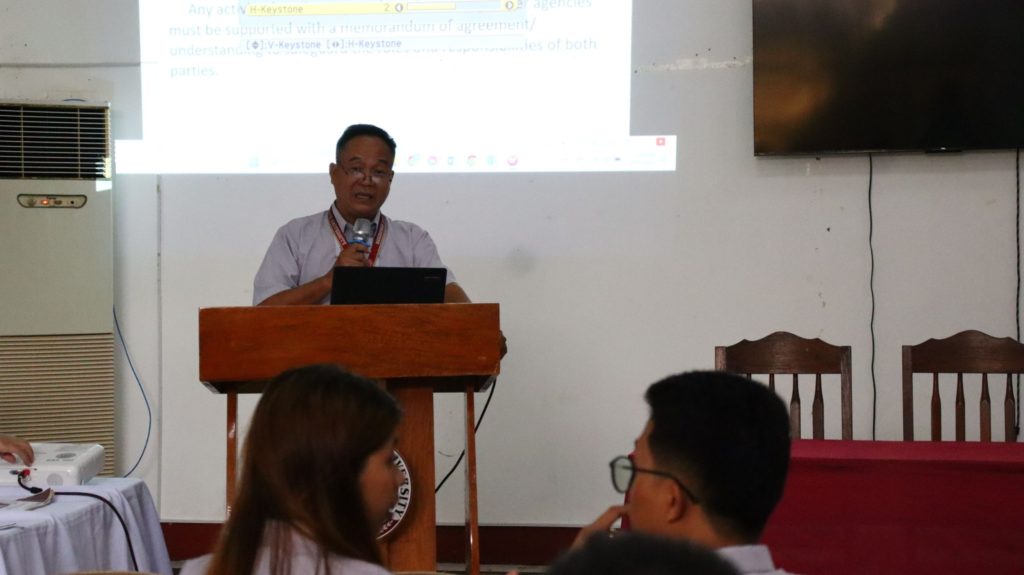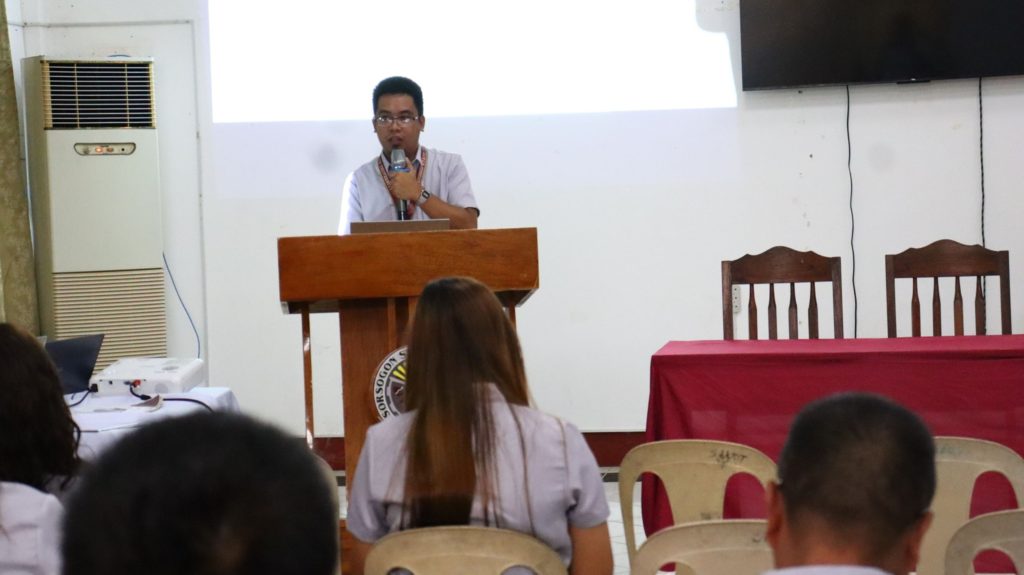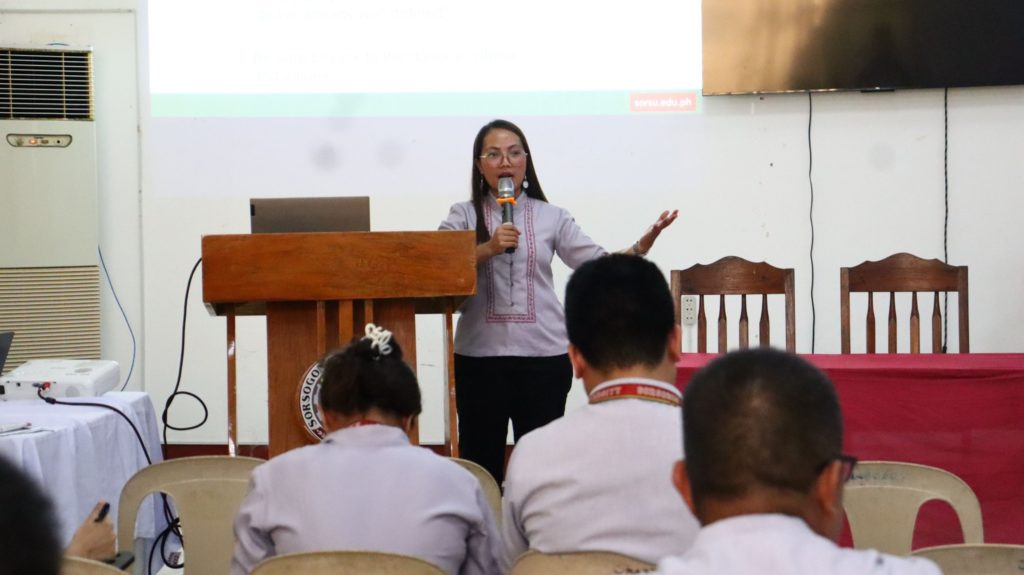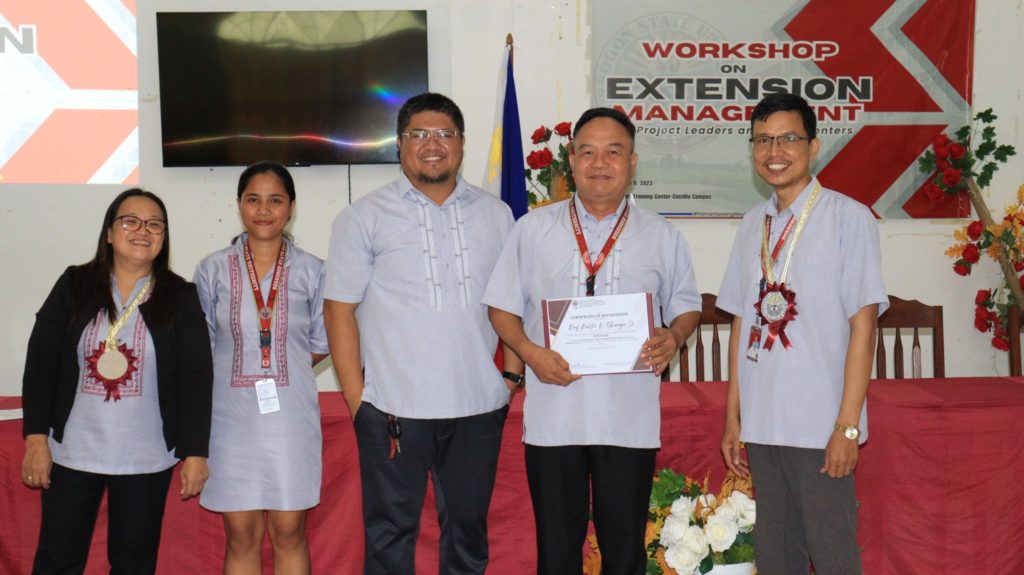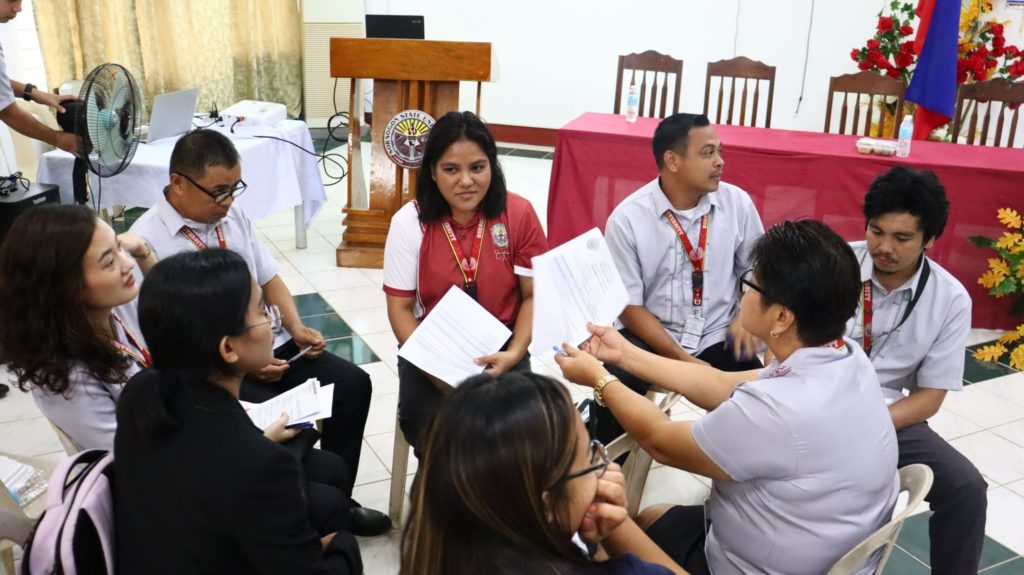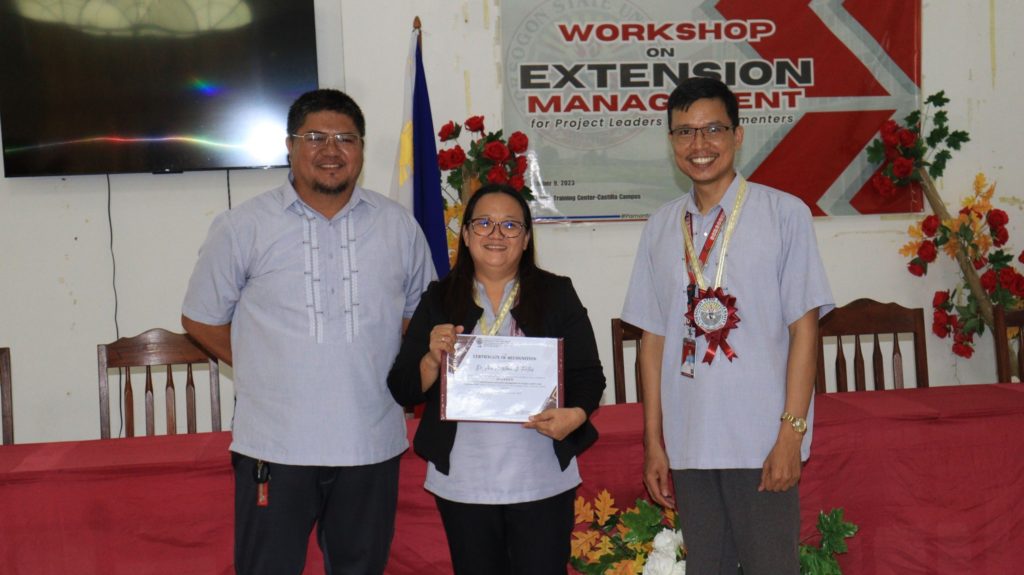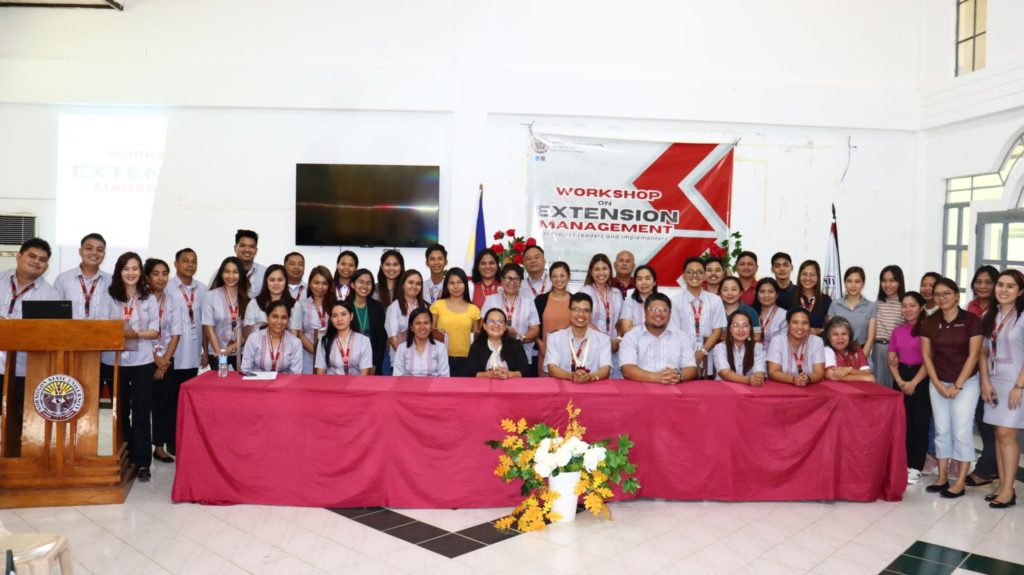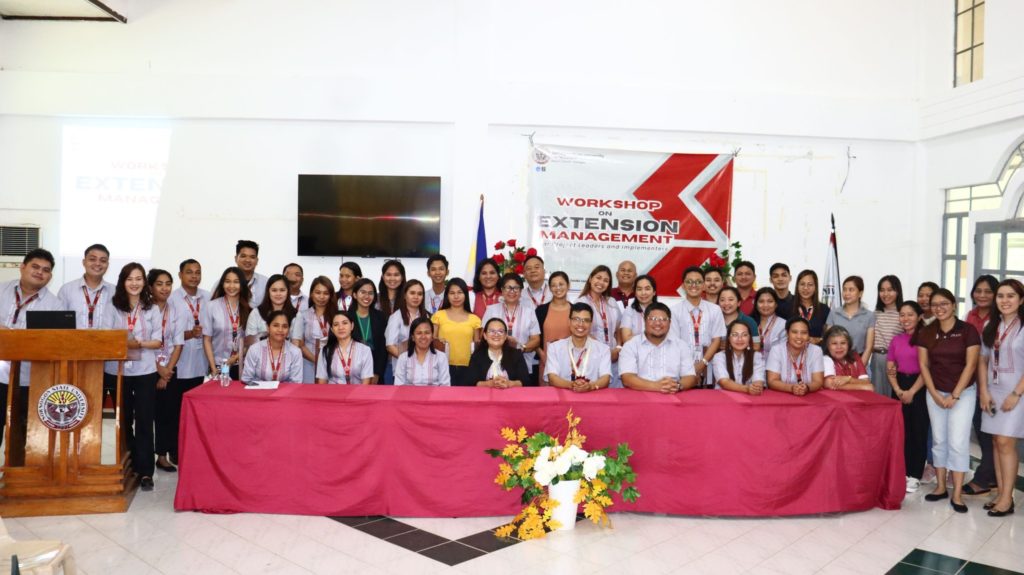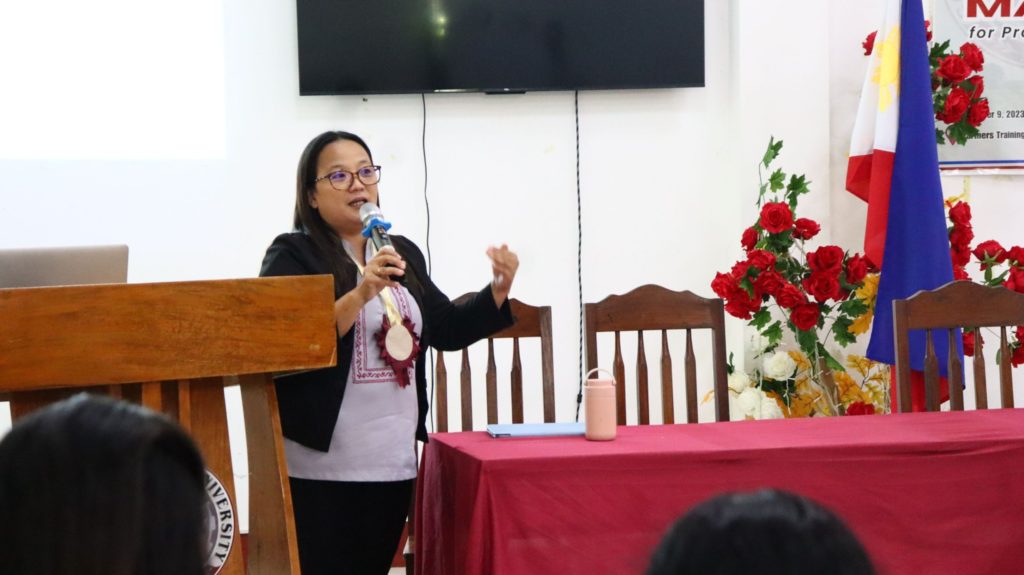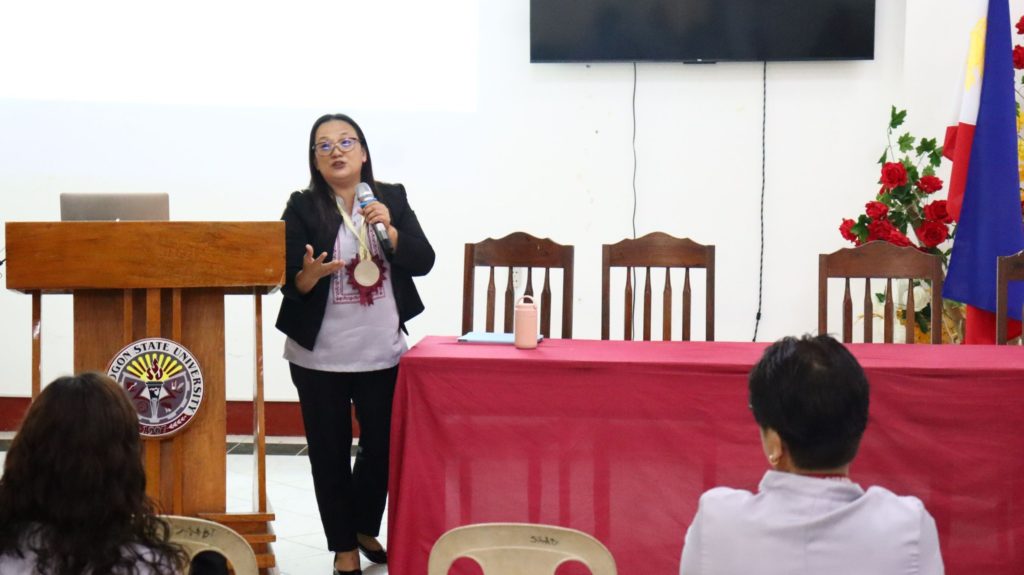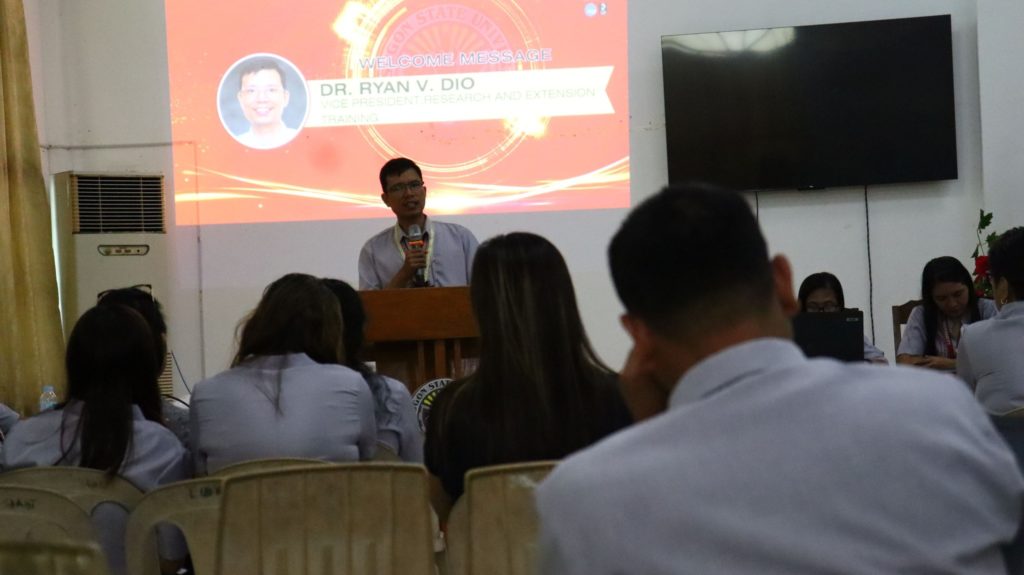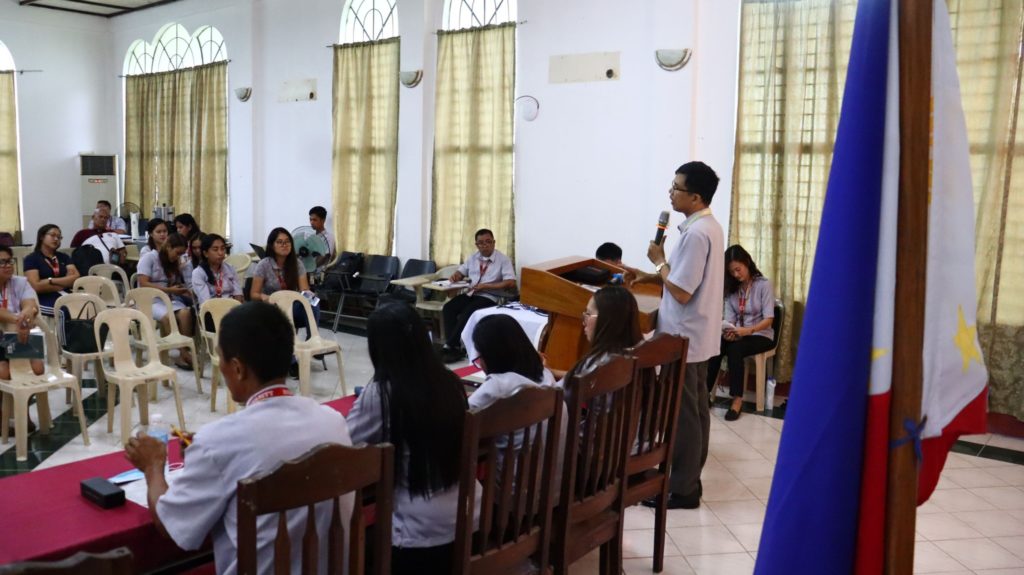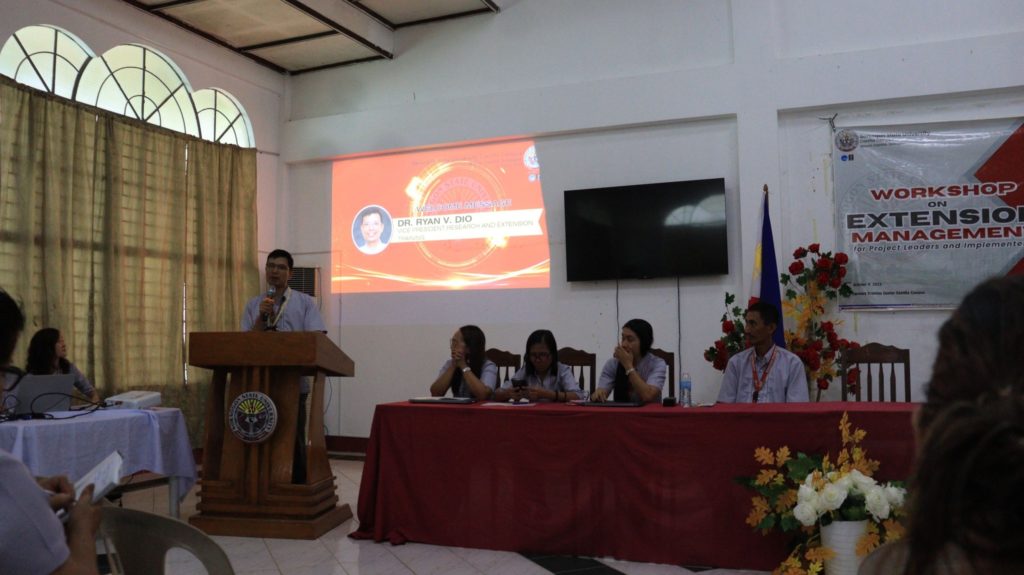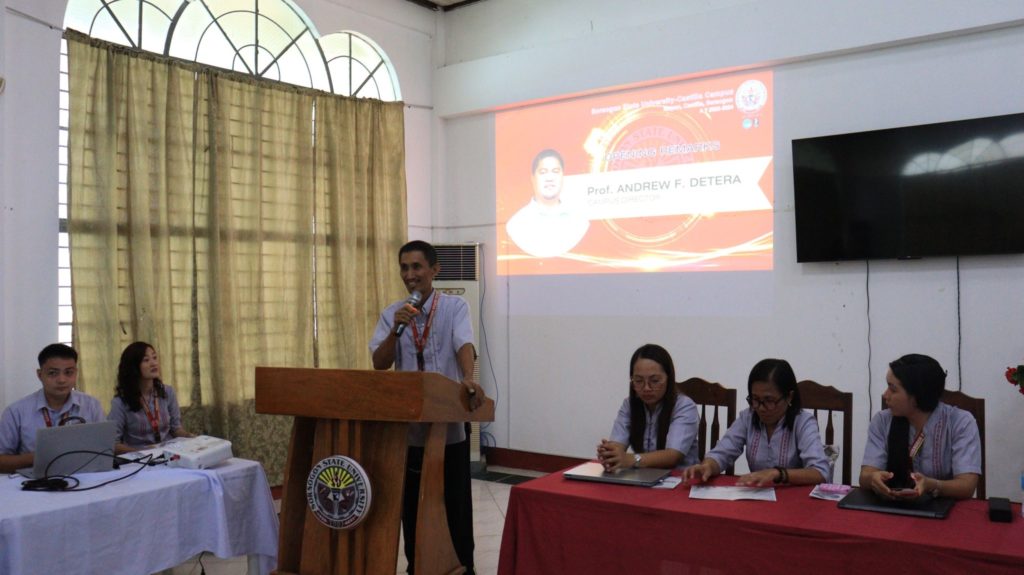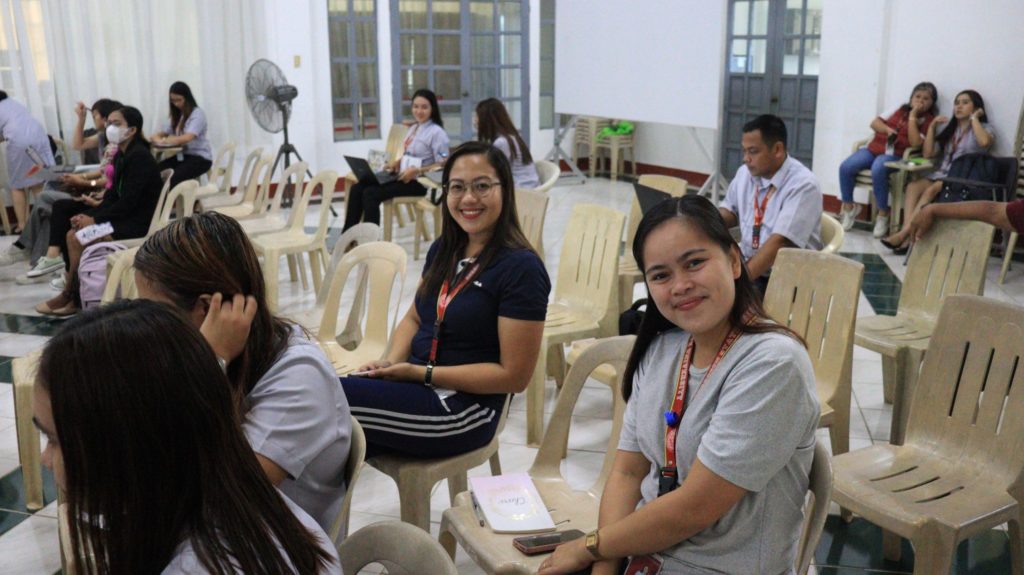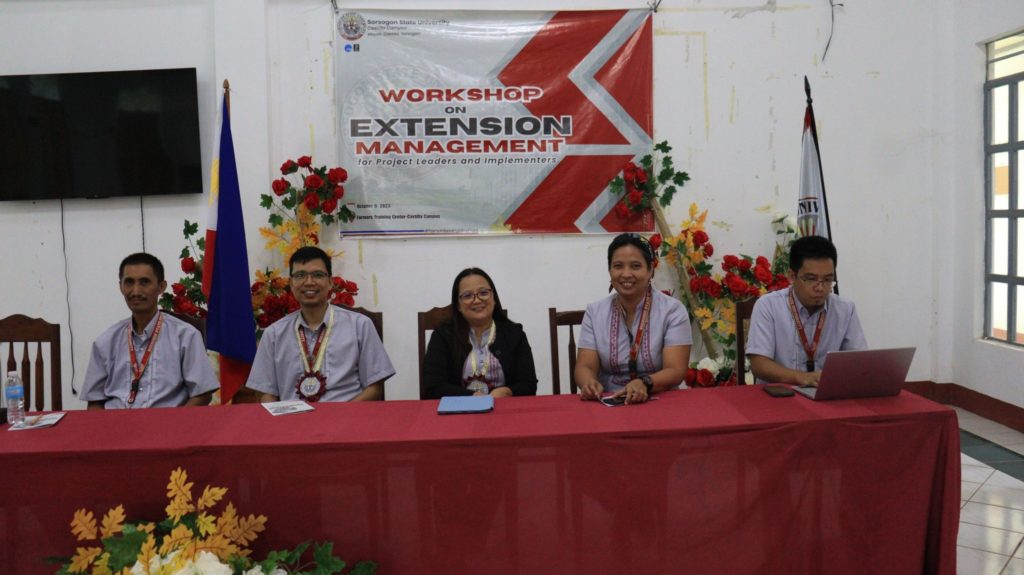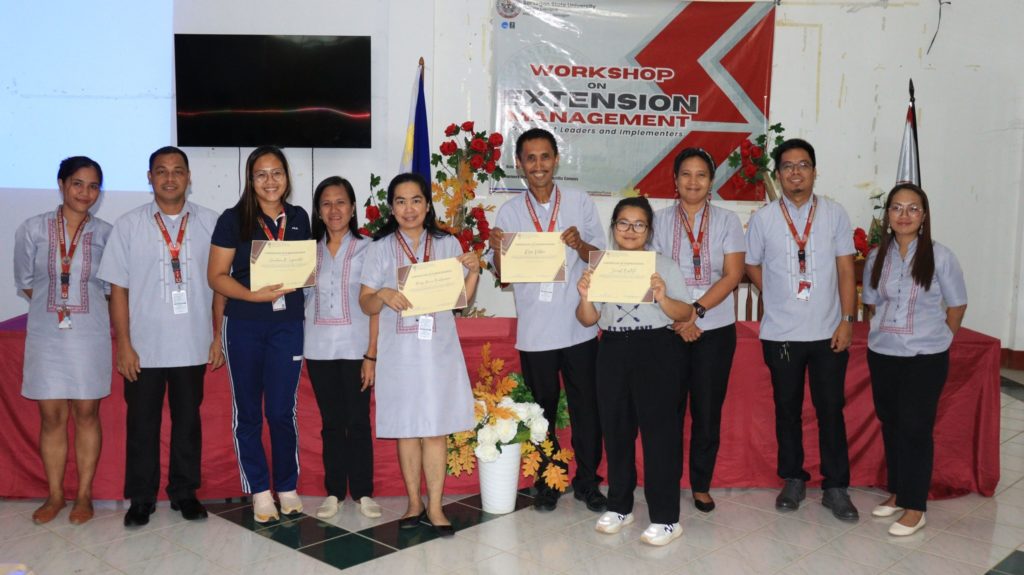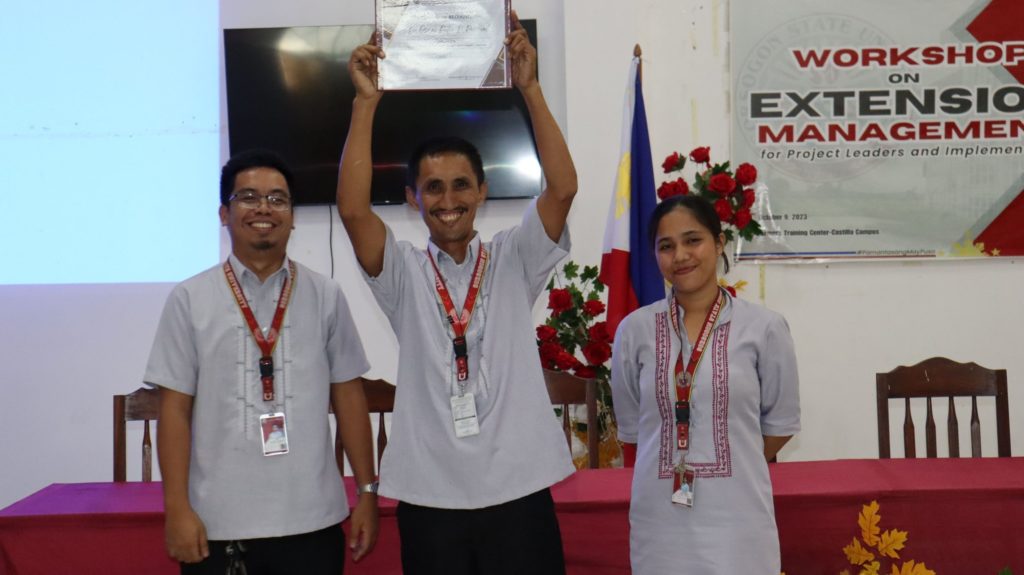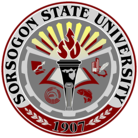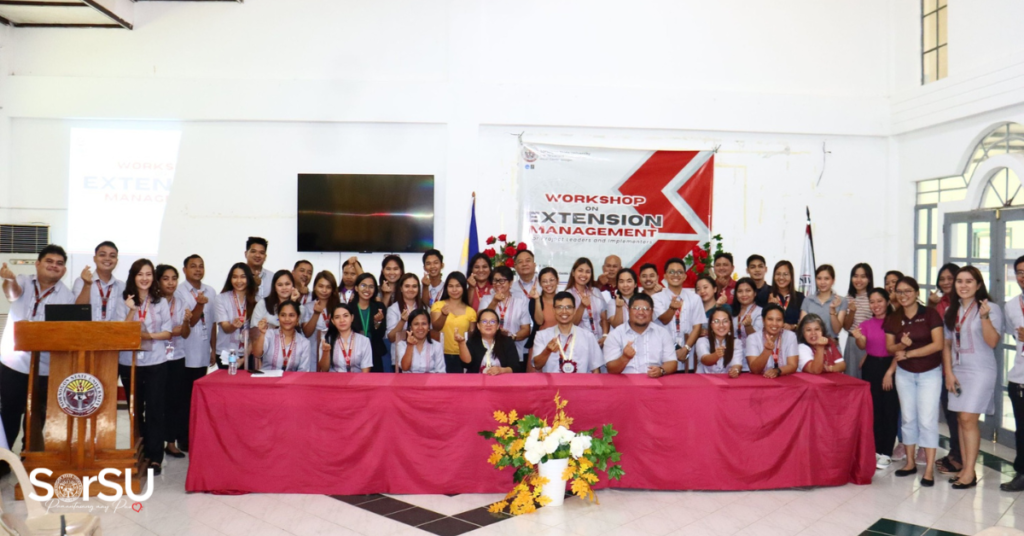Initiated by the Office of the Extension and Training Coordinator of Sorsogon State University- Castilla Campus in Coordination with the Office of the Director for Extension and Training and the Office of the Vice President for Research, Extension and Training, a Workshop on Extension Management For Project Leaders and Implementers was held on October 9, 2023 in the AV Hall of the Farmers Training Center of Sorsogon State University- Castilla Campus. Faculty members from the departments of Agriculture, Agribusiness, and Agricultural Technology attended the event.
In lieu of SorSU-CC Campus Director Prof. Andrew F. Detera, PMO and Pili Center Manager Engr. Oscar Peter D. Pascual gave the Welcome Remarks. In his speech, Engr. Pascual emphasized the significance of the event, stating that it will serve to familiarize new faculty members with what extension is and how they may one day participate in the extension programs of the campus.
In his Welcome Message, Dr. Ryan Dio, Vice President for Research, Extension, and Training, provided an overview of what is extension and emphasized the need to establish a connection between necessary changes and the development of impactful projects for the long-term sustainability of Sorsogon and beyond. Additionally, Dr. Dio highlighted the significance of conducting research in conducting a needs analysis prior to the implementation of an extension project.
Subsequently, Dr. Anna Cristina G. Fortes, the Director for Extension and Training at SorSU, delivered a presentation on the various Principles/Concepts of Extension. She discussed the role of Extension as a Key Result Area (KRA) at SorSU, emphasizing the importance of aligning Extension works with the AACCUP Instrument and SorSU’s Thrusts and Priorities. Dr. Fortes highlighted the significance of Agriculture as a crucial component of Extension, emphasizing how community involvement can contribute to its growth and improve the well-being of community members. Furthermore, she emphasized the necessity for Extension projects to adhere to AACCUP standards to ensure their relevance and effectiveness.
The introductory lecture presented by the SorSU-CC Gender and Development (GAD) Coordinator, Ma’am Mary Ann Caro, focused on the fundamental aspects of proposal development and the process of doing a needs assessment. Ms. Caro provided an explanation of the procedural elements associated with the development of proposals. After the presentation, Ma’am Caro administered an extra activity aimed at augmenting the faculty’s practical comprehension and application of the discussed topics.
Dr. Rose Ann Cleotilde I. Sambo explained the importance of performing thorough preparation before to commencing the extension project. In order to commence the extension.
Dr. Rochele N. Aragon addressed the imperative elements required for the formulation of an extension proposal. Additionally, she discussed the considerations involved in identifying the constituent components that constitute these essential elements.
Ms. Maribel Nolla emphasized the importance of developing the budgetary requirements for extension initiatives.
Mr. Brian Gabriel Buenaobra’s discussion on the procedure for submitting the proposal to the CERCOM and the RECO centered on the proposal’s revision, the issuance of office orders, and the request for supplies. The emphasis was placed on the proposal’s required protocols.
Prof. Nestor Ebuenga’s discussion centered on the Memorandum of Agreement (MOA), which aimed to identify and define the roles and responsibilities of the individuals involved in the project.
The implementation and sustainability of a project or initiative are crucial factors to consider in achieving long-term success and effectiveness. Procedures encompass the essential components of Monitoring and Evaluation. The significance of consistently evaluating and studying the advancement of the extension is highlighted in the discussion of Prof. Sheryl A. Gregory.
The process of Packaging and Dissemination of Extension Output encompasses two key components: the Presentation to Extension Conference and the Publication of an Extension Paper constructed by Engr. Oscar Peter D. Pascual. Engr. Pascual manifested that the act of publishing extension papers serves as an effective means to reach a diverse audience and facilitate the dissemination of extension outputs.
Ms. Ira Habla, the Campus Extension and Training Coordinator, expressed her gratitude by delivering a speech acknowledging the individuals responsible for the successful execution of the event. The program concluded with the presentation of Certificates to both the Resource Speakers and Participants.
